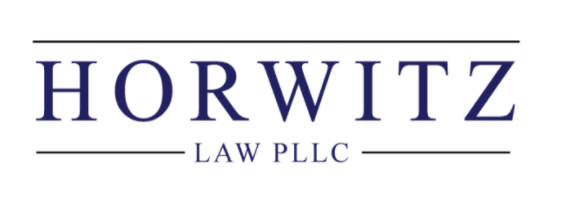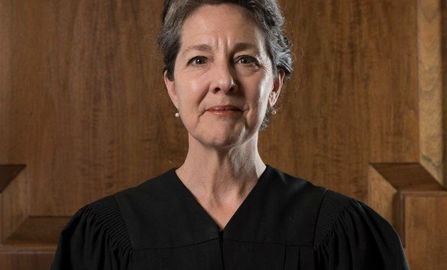By Daniel A. Horwitz
The Tennessee General Assembly is not exactly known for its constitutional literacy. Its members famously—and proudly—attempt to violate the Constitution on a seemingly weekly basis, costing taxpayers tens (if not hundreds) of thousands of dollars per case and millions of dollars each year when they succeed.
Historically, many have explained away Tennessee’s legislative spigot of unconstitutionality as just another manifestation of the General Assembly’s gleeful stupidity. By coming after Davidson County Chancellor Ellen Hobbs Lyle, however—a veteran judge appointed by a Republican Governor, and one of Tennessee’s most widely respected jurists—the General Assembly has made clear that its routine incompetence is also paired with a large helping of malice toward constitutional constraints in general. Disturbingly, though, while other legislative malpractice is typically remediable through judicial review, the Tennessee House GOP’s latest foray into lawless action is a direct assault on the separation of powers that threatens the independence of Tennessee’s judiciary itself.
The relevant background is as follows: In the summer of 2020, as Tennessee was being ravaged by a deadly pandemic that spread through in-person contact, several voters filed lawsuits in Davidson County Chancery Court seeking to expand absentee ballot access. The combined lawsuits involved the following two distinct categories of plaintiffs who sued for the right to cast an absentee ballot during the COVID-19 pandemic:
(1) “persons with special vulnerability to COVID-19 and persons who are caretakers for persons with special vulnerability to COVID-19;” and
(2) “persons who neither have special vulnerability to COVID-19 nor are caretakers for persons with special vulnerability to COVID-19,” but who were nonetheless worried about the consequences of becoming infected with COVID-19 or spreading COVID-19 to others.
At the time the cases were pending before Chancellor Lyle, the State of Tennessee took the position that neither category of voters qualified to cast an absentee ballot under applicable Tennessee law. Thus, the State defendants contended that both categories of voters would have to vote in person, or else, they would have to forgo their right to vote at all.
Upon review of the evidence before her, Chancellor Lyle ruled that “the State’s restrictive interpretation and application of Tennessee’s voting by mail law (Tennessee Code Annotated section 2-6-201), during the unique circumstances of the pandemic, constitutes an unreasonable burden on the fundamental right to vote guaranteed by the Tennessee Constitution.” As a consequence, Chancellor Lyle ordered the State of Tennessee to permit both categories of voters to vote by absentee ballot during the 2020 elections. Of some note, thirty-four states and the District of Columbia already allowed any voter to vote by absentee ballot during non-pandemic times, and virtually every jurisdiction other than Tennessee had taken significant additional steps to accommodate pandemic circumstances. Tennessee has also long permitted no-excuse absentee ballot voting for certain favored categories of voters, such as voters who are “sixty years of age or older.” Those responsible for selectively slicing and dicing absentee ballot access in this way can presumably explain why.
Unhappy with being ordered to expand absentee ballot eligibility to vulnerable voters, their caretakers, and others during a pandemic, the governmental defendants in the case did two things after Chancellor Lyle ruled against them. First, they asked the Tennessee Supreme Court to take up and review Chancellor Lyle’s order immediately. Second, they violated her order in material respects, prompting Chancellor Lyle to state—apparently unforgivably—“shame on you.”
While the State’s appeal was pending before the Tennessee Supreme Court, the State defendants—through the Tennessee Attorney General’s Office—abruptly reversed course as to whether the first category of voters listed above was qualified to vote by absentee ballot under existing law. Specifically, during oral argument before the Tennessee Supreme Court, the Tennessee Attorney General’s Office adopted the irreconcilable and novel position that “persons with special vulnerability to COVID-19 and persons who are caretakers for persons with special vulnerability to COVID-19” already qualified to vote by absentee ballot under the following two provisions of Tennessee law:
(C) The person is hospitalized, ill or physically disabled, and because of such condition, the person is unable to appear at the person’s polling place on election day; or
(D) The person is a caretaker of a hospitalized, ill or disabled person[.]
Tenn. Code Ann. § 2-6-201(5)(C) and (D) (2014 & Supp. 2019).
Two aspects of this concession are worthy of emphasis. The first is that it is not the position that the State of Tennessee took while the case was before Chancellor Lyle. The second is that it is not actually what the law says. Simply put: Fear of becoming “hospitalized, ill or physically disabled” is not the same thing as being “hospitalized, ill or physically disabled.” Because forcing vulnerable people to take on a genuine risk of death in order to vote would be an unconstitutional burden on the right to vote, though—precisely what Chancellor Lyle had ruled—the State defendants and the Tennessee Attorney General’s Office opted to change state law unilaterally in order to avoid an adverse constitutional ruling. Of note, months later, Tennessee Attorney General Herbert Slatery—who is not famous for honesty—would go on to ask the U.S. Supreme Court to void the entire U.S. Presidential election on the basis that certain other states had done the same thing.
Upon review, the Tennessee Supreme Court issued a partially unanimous and partially split opinion. To begin, given the State’s above “concession” during oral argument regarding the first category of medically vulnerable voters and their caretakers, the Tennessee Supreme Court unanimously agreed that such voters could vote by absentee ballot. In particular, the Tennessee Supreme Court’s opinion stated:
At oral argument before this Court, the State conceded that, under its interpretation of Tennessee Code Annotated section 2-6-201(5)(C) and (D), persons who have underlying medical or health conditions which render them more susceptible to contracting COVID-19 or at greater risk should they contract it (“persons with special vulnerability to COVID-19”), as well as those who are caretakers for persons with special vulnerability to COVID-19, already are eligible to vote absentee by mail. We hold that injunctive relief is not necessary with respect to such plaintiffs and persons. We instruct the State to ensure that appropriate guidance, consistent with the State’s acknowledged interpretation, is provided to Tennessee registered voters with respect to the eligibility of such persons to vote absentee by mail in advance of the November 2020 election.
Thus, the Tennessee Supreme Court held that Chancellor Lyle’s injunction compelling that result was no longer necessary given the State’s modified position, which fully conceded the issue.
Next, the Tennessee Supreme Court issued a 4-1 ruling that the second category of voters—those who did not have special vulnerabilities to COVID-19—could not vote absentee, because four Justices determined that the burden that COVID-19 imposed on healthy voters’ right to vote was not unreasonable. Accordingly, a majority of the Court reversed Chancellor Lyle’s ruling with respect to “persons who neither have special vulnerability to COVID-19 nor are caretakers for persons with special vulnerability to COVID-19” alone.
Now seven months later, dozens of Republican members of Tennessee’s House of Representatives not only remain upset with Chancellor Lyle’s order—they seek to remove her from her office because of it. The reason? An allegation of judicial overreach. Specifically, State Rep. Tim Rudd—the Resolution’s main sponsor—contends:
“The U.S. Constitution plainly states ‘The Times, Places and Manner of holding Elections for Senators and Representatives, shall be prescribed in each State by the Legislature thereof; but the Congress may at any time by Law make or alter such Regulations’ (Article I, section 4),’ Rudd said. “The last time I looked, the words, ‘Judiciary having the power to hold elections’ was [sic] not in the U.S. Constitution or the Tennessee State Constitution.”
Again, two matters are worthy of emphasis. The first is that Representative Rudd appears to be unfamiliar with what actually occurred during the litigation before Chancellor Lyle, because the scope of Article I, section 4—an issue that the United States Supreme Court recently declined to review—was not even presented in the case. Readers will search the Tennessee Supreme Court’s opinion in vain for any reference to it. The reason? Chancellor Lyle’s order was a ruling that a Tennessee election law abridged a constitutional right as applied to pandemic circumstances—a ruling that is not even theoretically in conflict with Article I, section 4. By contrast, what the Tennessee Attorney General and the State defendants in the case did—abruptly change the meaning of state election law during the middle of litigation without any legislative approval or supporting statutory basis for doing so—may well have contravened Article I, section 4. Consequently, if that is Representative Rudd’s concern, then he is attempting to remove the wrong public officials from office.
The second matter is that seeking to remove a judge from office because the judge ruled that a state statute is unconstitutional is, itself, unconstitutional. If removal were permitted under these circumstances, the result “would be monstrous and wholly abhorrent to fundamental ideas of justice and judicial independence,” and “the judiciary would no longer be an independent and co-ordinate branch of the government, but a mere servile dependency.” That is not the author’s characterization. It is what the Supreme Court of Tennessee ruled regarding the Tennessee Constitution’s removal provision in 1899, when it clearly and unmistakably held that the General Assembly would be forbidden from removing a judge on the basis that the judge “had declared unconstitutional a particular enactment of the legislature.” See McCulley v. State (State Report Title: The Judges’ Cases), 102 Tenn. 509, 53 S.W. 134, 138 (1899).
Instead, judges may only be removed for valid legal cause, such as misconduct in office. See, e.g., In re Dender, 571 S.W.2d 491, 492 (Tenn. 1978) (“Article VI, Sec. 6[ ] provides sanctions to be applied against a judge guilty of official misconduct.”); Tenn. Op. Att’y Gen. No. 93-21 (Mar. 12, 1993) (“Removal under Article VI, Section 6 must be for cause, affecting the judge personally or the administration of his office. This requirement prohibits the possibility of arbitrary removals.”) (citation omitted). In 1987, the Tennessee Supreme Court also expressly reaffirmed that “the removal contemplated by Article VI, section 6 [must be] for cause affecting the official personally or the administration of his office, to be effected after notice and trial.” In re Murphy, 726 S.W.2d 509, 513 (Tenn. 1987). And while other (Republican) judges’ actual misconduct in office has curiously been ignored by the General Assembly, at least where Chancellor Lyle is concerned, no such misconduct has even plausibly been alleged.
Put another way: The claim that Chancellor Lyle violated any law at all is not a serious one. She adjudicated a legal dispute that was brought to her, which is what judges do. On appeal, the State of Tennessee outright conceded part of what she ruled, and the Tennessee Supreme Court issued a split opinion reversing her ruling on another aspect of the case. Unsurprisingly, given the importance of an independent judiciary, removal under these circumstances is not only improper—it is illegal.
Neither is Representative Rudd’s apparent upset about Chancellor Lyle tsk-tsking the State defendants for violating her order a removable offense. Up until the moment of reversal, Chancellor Lyle’s orders were indisputably valid, and the parties in the case were obligated to follow them. As the Tennessee Supreme Court has made clear many times: “An order is not rendered void or unlawful simply because it is erroneous or subject to reversal on appeal. Erroneous orders must be followed until they are reversed.” Konvalinka v. Chattanooga-Hamilton Cnty. Hosp. Authority, 249 S.W.3d 346, 355 (Tenn. 2008) (citations omitted). Nonetheless, the State defendants did not comply with her orders. The legal term for this is “contempt.” For reasons that are frankly inexplicable, the Tennessee Attorney General’s Office and governmental defendants also routinely violate or otherwise fail to comply with court orders. Thus, if anything, consequences far more severe than the words “shame on you” were warranted.
In summary: Representative Rudd and his clown car are not only, yet again, attempting something that is constitutionally forbidden—they are threatening the independence of Tennessee’s judiciary in the process. This threat is intolerable and unacceptable. Their lawless behavior should be condemned by anyone who cares about judicial independence, the Constitution, or the most basic tenets of the rule of law as a consequence.
Like ScotBlog? Join our email list or contact us here, or follow along on Twitter @Scot_Blog and facebook at https://www.facebook.com/scotblog.org





